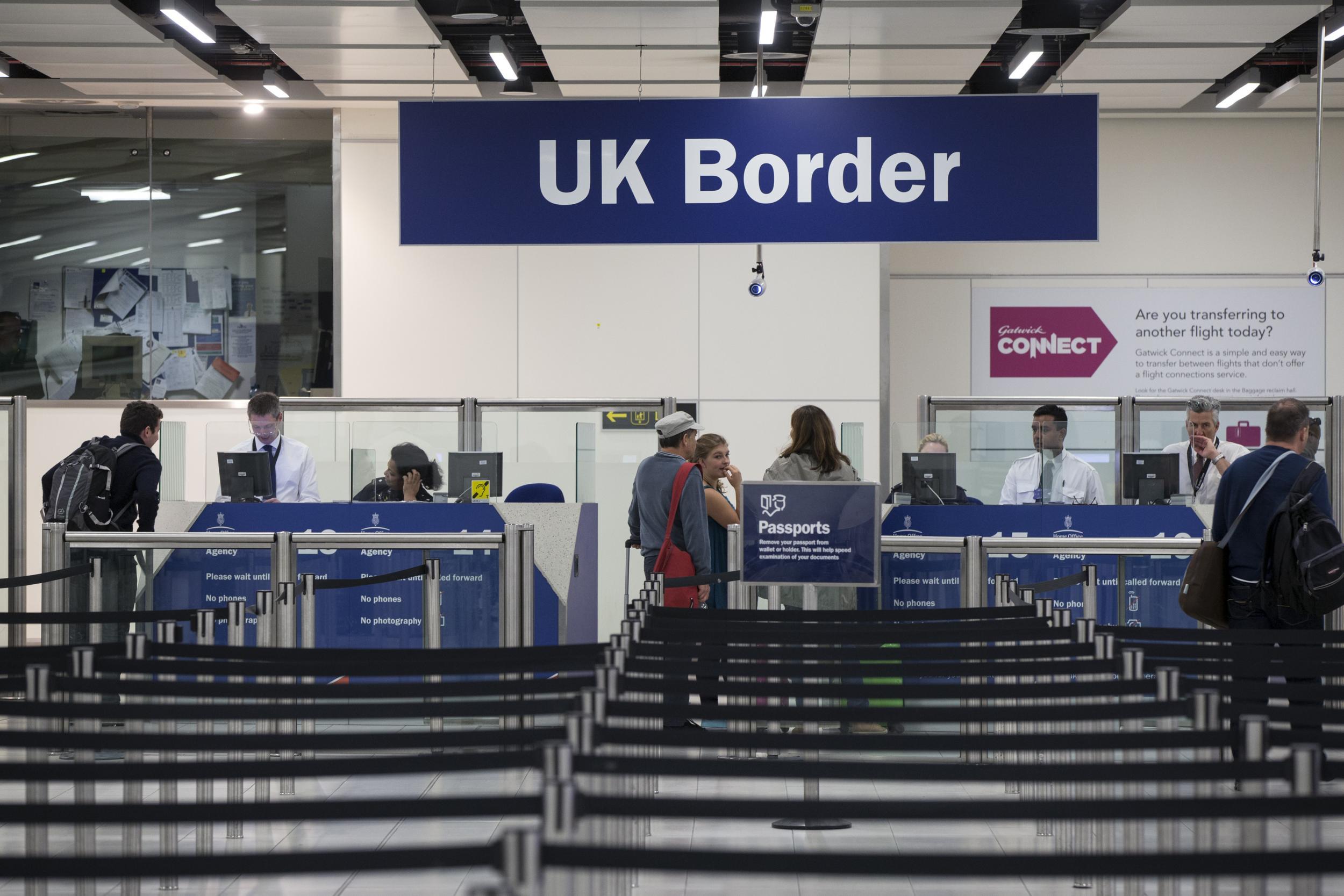The Independent joins Open Britain in launching a cross-party campaign to drop the migration target
There is little logic in trying to replace one failed system, based on the ‘tens of thousands’ cap, with an even more flawed approach

Today The Independent joins Open Britain in launching a cross-party campaign to make the Government drop its arbitrary and damaging migration target. Even more than Brexit itself, this approach both threatens the long-term prospects for economic growth and the country’s ability to care for its sick and elderly. Some sectors of the economy would simply collapse for lack of staff. The stakes, then, are high, and this is about more than economic abstractions. This is why this campaign is backed by the Migration Matters Trust and the Royal College of Midwives. We have also launched a petition that seeks to end the cap.
Does the result of the referendum mean that the migration cap has been validated by popular vote? No. There is little doubt that, however misguided, much of the vote that went to the Leave campaign in the referendum did so because of concerns about immigration. What is equally clear, however, is that the immigration controls that are already in place are, in practical terms, quite ineffective. Besides, the question of immigration itself was not on the ballot paper – along with many other unforeseen and unintended consequences of Brexit.
There is little logic in trying to replace one failed system, based on the “tens of thousands” cap, with an even more flawed approach and, prospectively an even lower cap. The UK needs migration, as it always has, to fuel the economy, as well as to enrich our cultural life. In recent years, as the population has begun to age dramatically, that has been more the case than ever before. Some sectors of the economy – social care, health care, hotels and restaurants, the taxi trade, parts of agriculture and horticulture, to name just a few – face serious difficulties if migration is suddenly cut off. In the longer run it will simply add to the burdens of a shrinking working population trying to cope with their parents and grandparents living longer but not always healthier lives.
These facts of economic life remain whatever the referendum result and notwithstanding the triggering of Article 50. Once the “phoney war” is over and the realities of our new economic relationship with the EU become clear, investment and jobs will start to be affected, as will the exchange rate, inflation and the public finances. These effects will be greatly exacerbated if the Government attempts to restrict migration through an arbitrary cap.
Ministers have spoken in the past about a “points system” and, more recently, about how EU workers will still be able to come and work in Britain. Theresa May has also set out her ambition that EU citizens presently in Britain should be allowed to stay – though there is as yet no firm commitment to preserve their rights unilaterally. Broadly, there is agreement that an intelligent system of migration control would not involve one overriding cap that will cover all sectors and all circumstances. In that context, it seems even stranger that ministers seek to cling to the present limits, when so much has changed and is about to change.
There is a further point too. The debate on migration is all too often based on an assumption that migration is bad, adding to the strain on public services and the bill for social security, and resulting in greater crime and terrorism. The Government has, unwittingly, reinforced these negative stereotypes, which have no foundation in fact. Quite the opposite in fact: migrant communities are traditionally younger, more enterprising and less likely to be jobless than the “host” community, and no more liable to be involved in crime.
The number of home-grown and convert Islamist terrorists should also remind us that not all terrorists come from abroad. Even if they did, it is a vanishingly small proportion, and, if the price of ending terrorism is ending the movement of people into Britain, Trump-style, then the terrorists really will have won. Of much more relevance, and benefit, are the thousands, if not millions, of migrants from all over the world working in schools and hospitals, in sport and in universities, running their own businesses, and, like everyone else, simply wanting to make a better life for themselves and their families. The time for victimisation and stigma is long past. The time has come to scrap the cap.

Join our commenting forum
Join thought-provoking conversations, follow other Independent readers and see their replies